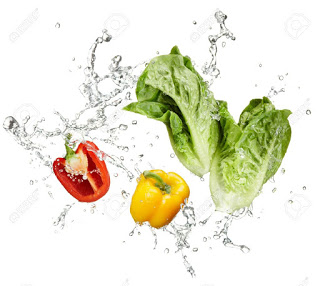The characteristics of water used in the production and preparation of food are quite important. National, state and local regulatory authorities require the use of potable water in food production. Potable water standards are defined by the Environmental Protection Agency as listed by National Interim Primary Drinking Water Regulations that deal with health. The safety of water for human consumption will always be the most important consideration.
Characteristics of Water Hardness
Potable water, however, may possess soluble minerals such as calcium and magnesium that are of significant importance. These ions form precipitates with bicarbonates in water when it is heated, and with sulfates when water is evaporated from solution. This phenomenon is known as water hardness. The hardness of water may be expressed quantitatively in terms of parts per million (ppm) for calcium, ppm of calcium carbonate, and grains calcium carbonate per gallon of water. Based on grains of carbonate per gallon, water is classified as follows:
Soft: 1 to 4 grains per gallon
Medium: 5 to 10 grains per gallon
Hard: 11 to 20 grains per gallon
Hard water is also sometimes classified as temporarily hard or permanently hard. Temporarily hard water is softened when the water is boiled. Soluble carbonates are converted to insoluble carbonates, and the unwanted ions are removed from the water. However, these precipitated carbonates form a deposit on equipment in homes and plants using hard water. This "scale" can act as an insulating layer against efficient heat transfer and may eventually clog valves and pipes in homes and food production facilities. These deposits can harbor bacteria, thus making it quite difficult to clean and sanitize equipment. Boiling cannot soften permanently hard water. Sulfates and chlorides of magnesium or calcium cause this type of water hardness.
Cooking Fruits and Vegetables in Hard Water
When fruits and vegetables are heated (cooked) in water, the amount of calcium ions in the water will influence the textural properties of the products. For example, calcium ions may form insoluble salts (calcium pectates) that are beneficial for maintaining firmness in cooked fruits and vegetables. However, if there is an excessive amount of calcium ions in the water, the fruits and vegetables may become excessively tough, and dried beans and dried peas will be difficult to rehydrate when cooked.
Cleaning with Hard Water
Hard water is also a problem in households and manufacturing facilities when it influences the ability soaps and detergents to form lather or "suds." For these reasons, chemical water softener treatments have been developed to eliminate the calcium and magnesium ions. Washing soda ( a laundry aid), Na2Co3, an alkaline salt is often used to precipitate the calcium or magnesium ions as insoluble calcium or magnesium carbonate. Polyphosphate salts also soften water by binding calcium or magnesium ions.
Ion-exchange water-softening systems may also be installed in homes and businesses as a way to remove unwanted ions from water. When this method is used, water is allowed to pass through a bed of insoluble granular material that removes calcium or magnesium ions from the water in exchange for sodium or hydrogen ions. When zeolites (hydrous silicates) are used, sodium ions from the zeolite are exchanged for calcium or magnesium ions of the water. When the chemical can bind no more calcium, the complex is regenerated by flushing it with a solution of sodium chloride, which removes the calcium or magnesium ions and replaces them with sodium ions. If resins instead of zeolite are used, hydrogen ions rather than sodium ions replace the calcium and magnesium ions.
Wise Water International (distributors of Eagle Water Treatment Systems) believe that cleaning and cooking with the proper water is very important. Find out more information at www.wisewaterint.com or call 1-866-427-7757.

























